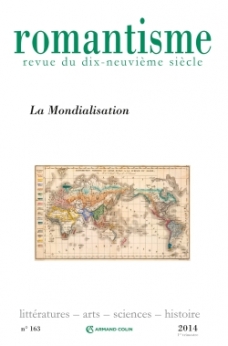
Romantisme n° 163 (1/2014)
Pour acheter ce numéro, contactez-nous
Recevez les numéros de l'année en cours et accédez à l'intégralité des articles en ligne.
À Londres, lieu privilégié de l’exil politique, des organisations cosmopolites se constituèrent dès les années 1840, à l’instar des Fraternal Democrats (1845-1848), du Comité international (1854- 1856) puis de l’Association internationale (1856-1859). Tout en étant leur héritière, l’Association internationale des travailleurs (AIT, 1864-1876), fut aussi d’une autre nature. Créée dans une période d’essor du mouvement ouvrier et des organisations démocratiques, elle regroupait des organisations ouvrières (syndicats, associations, mutuelles) et des membres adhérant sur une base individuelle. C’était un lieu de confrontation de diverses traditions politiques, une organisation syndicale pratiquant une solidarité agissante et une société politique internationale. Elle s’implanta dans toute l’Europe de l’Ouest, aux États-Unis, en Amérique du Sud, avant de disparaître dans les années 1870.
In London, which was the main asylum for political exiles, cosmopolitan organisations were created from the 1840s, with the Fraternal Democrats (1845-1848), the International Committee (1854-1856) and the International Association (1856-1859). The International Workingmen’s Association (IWMA, 1864-1876) inherited many of their features but also broke new ground. It was created in a period of expansion of the labour movement and of democratic groupings. It gathered workers’organizations – trade-unions, associations, friendly societies – as well as members who had joined on an individual basis. It was simultaneously an area for the confrontation of different political traditions, a union which organized practical solidarity, and an international political organization. It had branches in the whole of Western Europe, the United States and South America before it disappeared in the 1870s.

